When tensions flare and words are exchanged in the heat of the moment, it's easy to let misunderstandings spiral out of control. Apologizing can be daunting, but it's a vital step towards rebuilding trust and understanding in your relationship. A heartfelt letter can convey your feelings more effectively, allowing you to express regret and reinforce your commitment to your partner. If you're ready to mend those broken pieces, read on for some thoughtful letter templates that can help guide you through this heartfelt process.

Expression of remorse and responsibility
After a heated disagreement, feelings of remorse can weigh heavily on the heart. It is essential to acknowledge and take responsibility for your actions during the argument, recognizing how they may have hurt your partner emotionally. A sincere expression of regret should focus on specific words or behaviors that escalated the situation, demonstrating a deep understanding of their impact. Trust is foundational in relationships, and owning up to mistakes can help repair any fractures created by the conflict. Reassuring your partner of your commitment to improving communication can foster healing, paving the way toward a stronger bond and renewed connection.
Acknowledgement of the partner's feelings
Apologizing after a disagreement requires sensitivity and understanding. Acknowledge your partner's feelings by recognizing their emotions and validating their experiences. For instance, you might reflect on how they felt during the argument, expressing empathy towards their sadness or frustration. Highlight their viewpoints, showing that you have listened and understand the impact of the situation on their emotional state. A sincere acknowledgment fosters connection and shows that you value their perspective, setting the stage for meaningful reconciliation.
Clear explanation of the misunderstanding
Miscommunication can often arise in relationships, leading to unnecessary arguments. A recent disagreement with a partner highlighted a misunderstanding regarding emotional needs and expectations. During a discussion about future plans, differing interpretations of commitment levels emerged, with one partner perceiving hesitation while the other felt overwhelmed by assumptions. Personal experiences and past relationships added layers to the conflict, intensifying emotions. Recognizing these factors is crucial for resolving misunderstandings. Open dialogue about feelings, including vulnerability and fear of losing intimacy, can foster deeper understanding and healing. This situation underscores the importance of communication and clarity in maintaining a fulfilling partnership.
Reassurance of commitment and love
After a disagreement with your partner, it is essential to express sincere feelings of commitment and love. Apologies should include acknowledgment of the specific issues, while reinforcing the strength of the relationship. Emphasize shared values, mutual respect, and future intentions, assuring your partner of unwavering support. Using personal anecdotes or memories can strengthen the reassurance, showing the depth of the bond. Highlight the importance of communication, openness, and willingness to grow together. Such expressions help mend emotional wounds and reaffirm dedication to the relationship, creating a strong foundation for healing and understanding.
Steps for conflict resolution and improvement
Effective conflict resolution between partners requires a structured approach that fosters understanding and promotes emotional healing. Initiate the dialogue by dedicating a serene environment, facilitating an atmosphere conducive to open communication. Focus on active listening, ensuring both parties feel heard; reflective phrases can facilitate this process. Acknowledge the differing perspectives while validating emotions, such as disappointment or frustration, to demonstrate empathy. Clearly articulate your feelings about the argument and express genuine remorse for any hurt caused. Propose specific actions for improvement, like scheduling regular check-ins to discuss feelings or seeking counseling if necessary. Emphasize the importance of collaboration in resolving differences, aiming to strengthen the partnership, particularly during challenging circumstances. Reinforce commitment to mutual respect, establishing ground rules for discussing future disagreements with compassion and understanding. Fill the conversation with love and reassurance, reminding each other of valuable shared moments to solidify the bond.
Letter Template For Apologizing After Arguing With A Partner Samples
Letter template of sincere remorse following a fight with a significant other
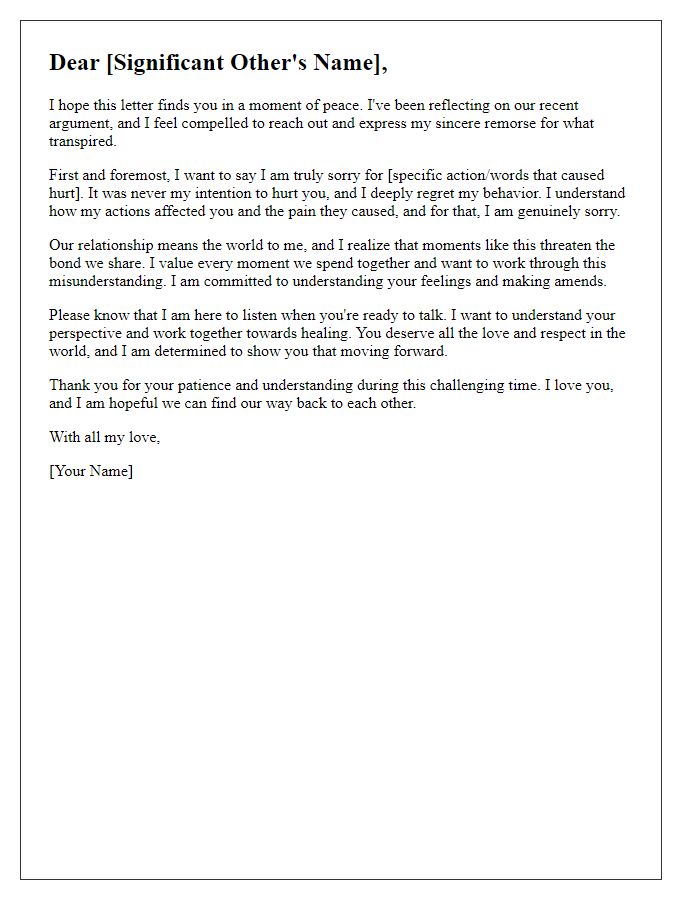
Letter template of reconciliation after a heated argument with a partner
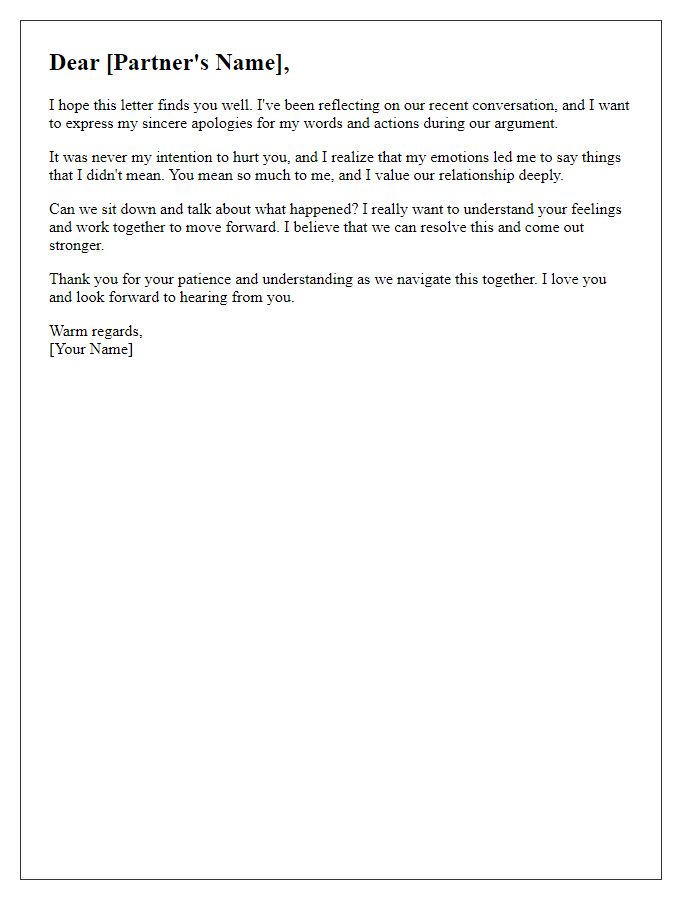
Letter template of seeking forgiveness following a dispute with a loved one
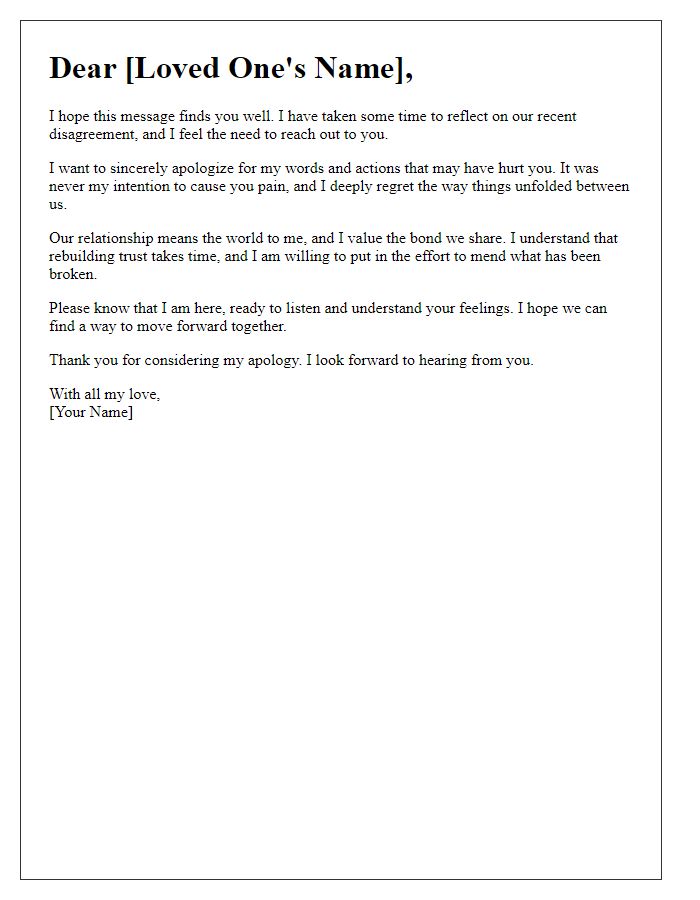
Letter template of expressing vulnerability after an argument with a partner
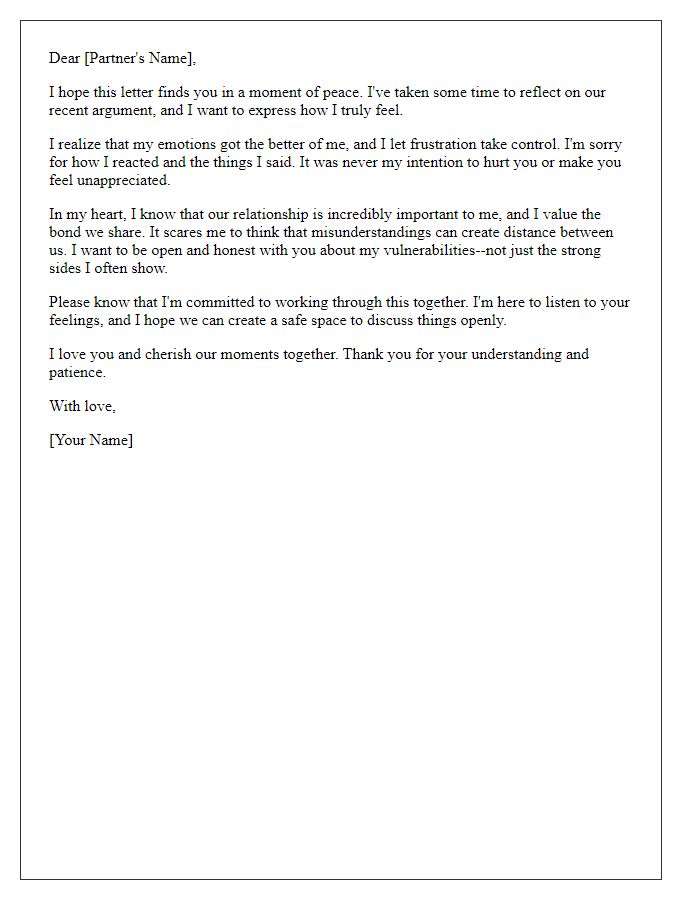

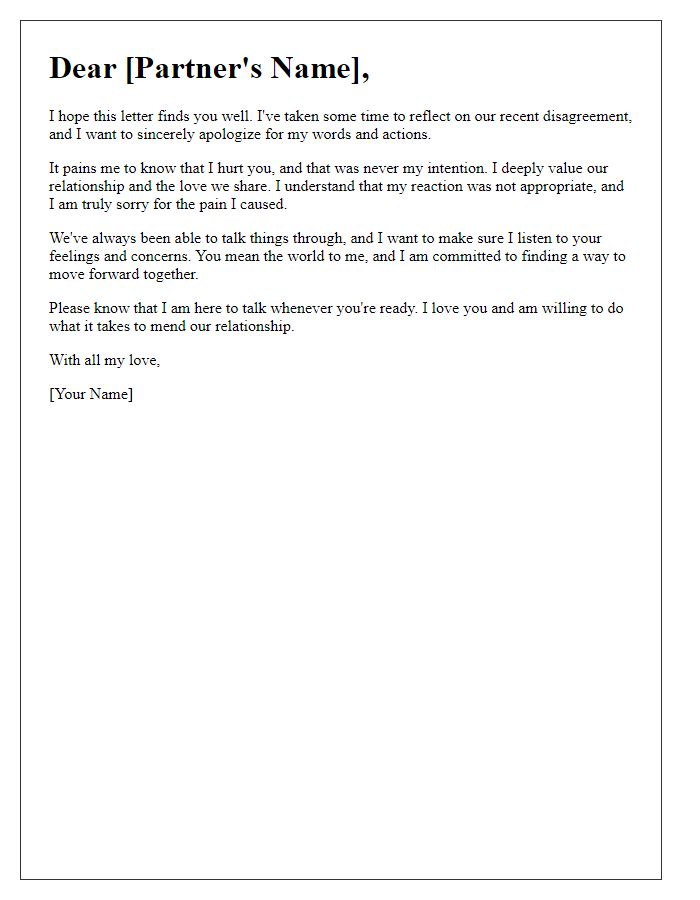
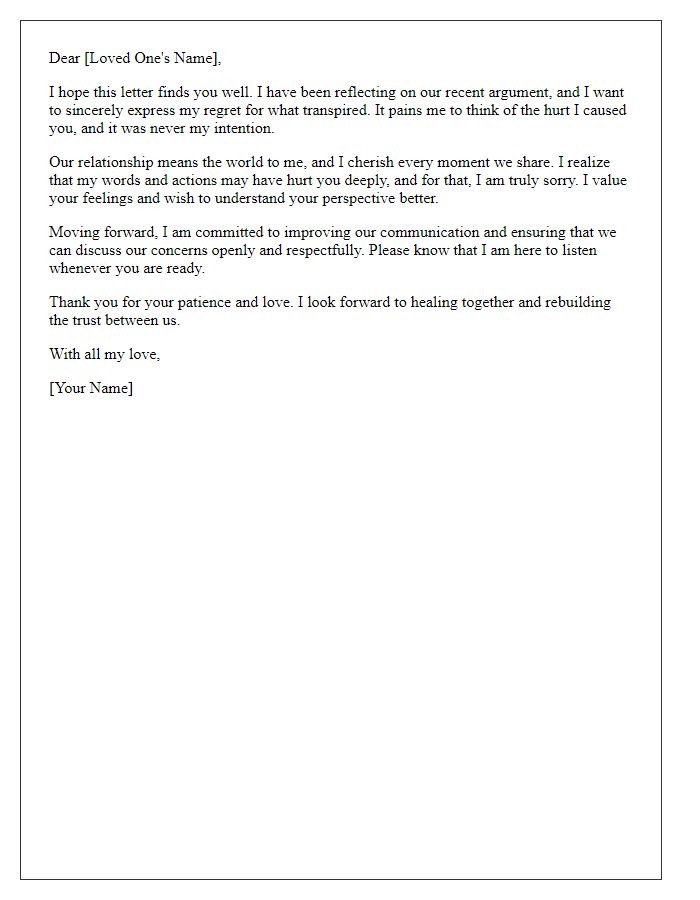
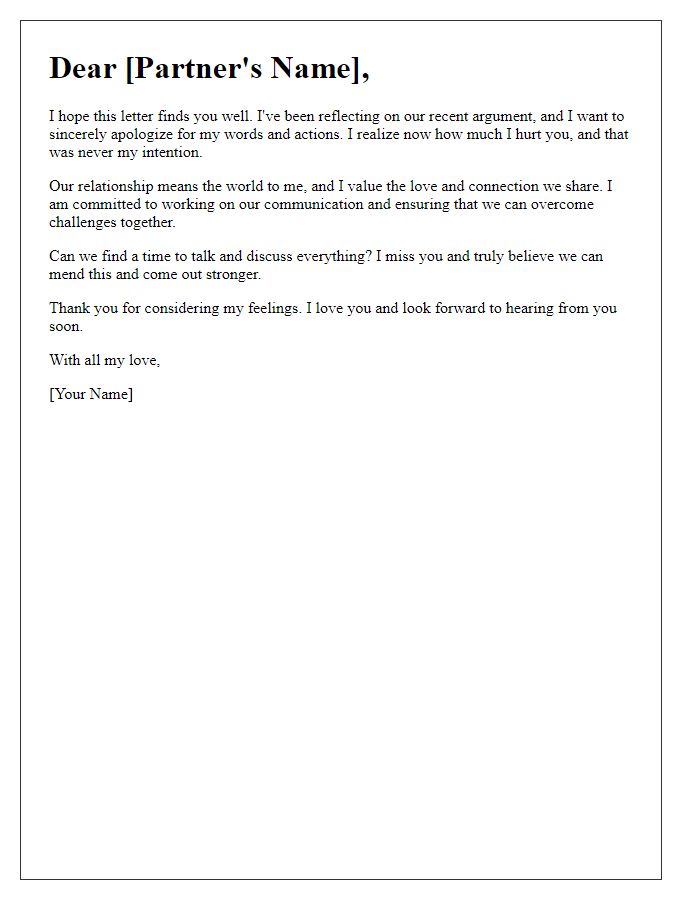
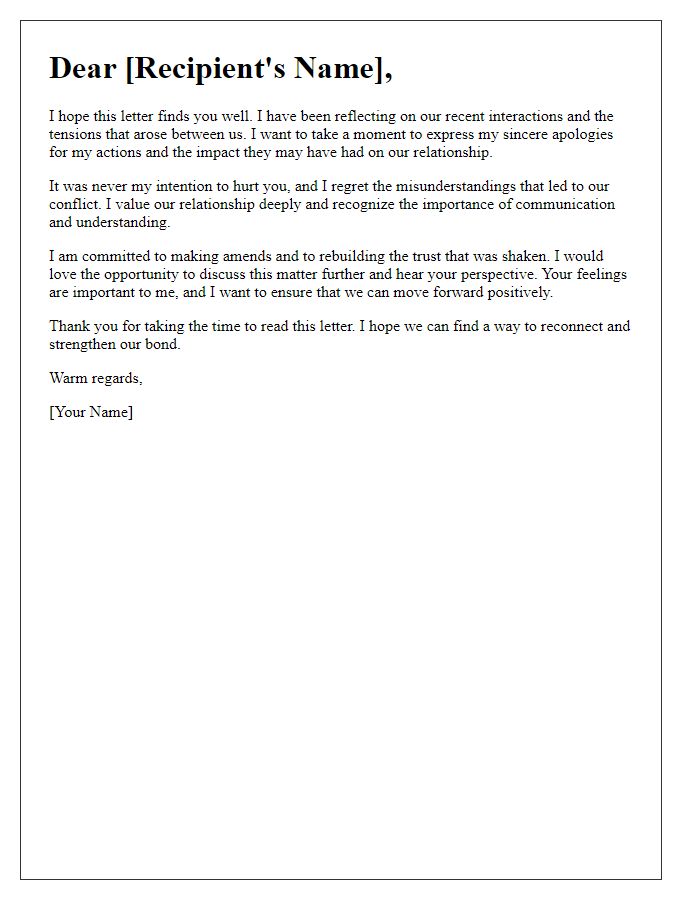
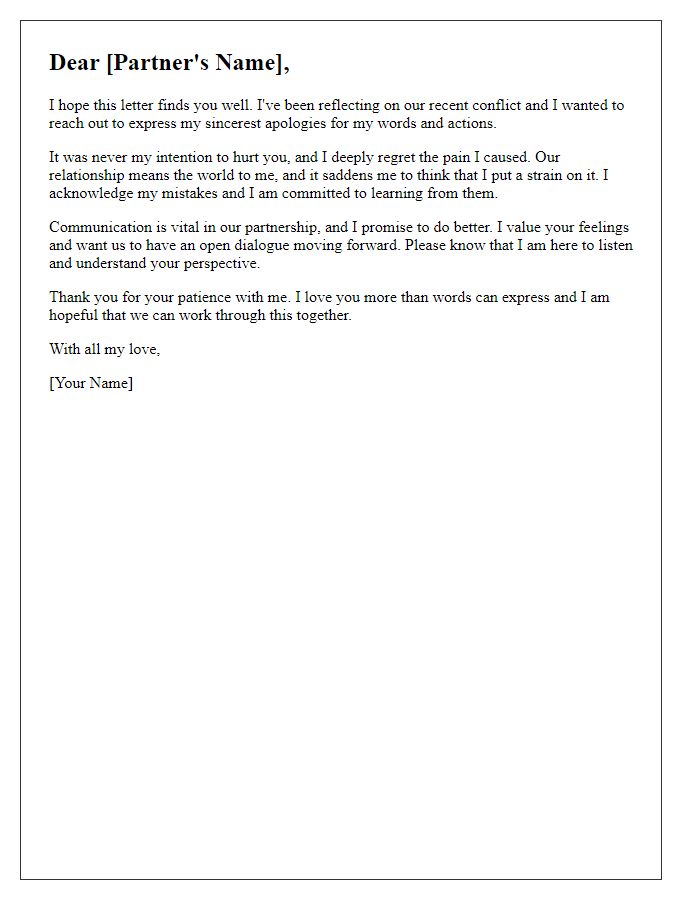
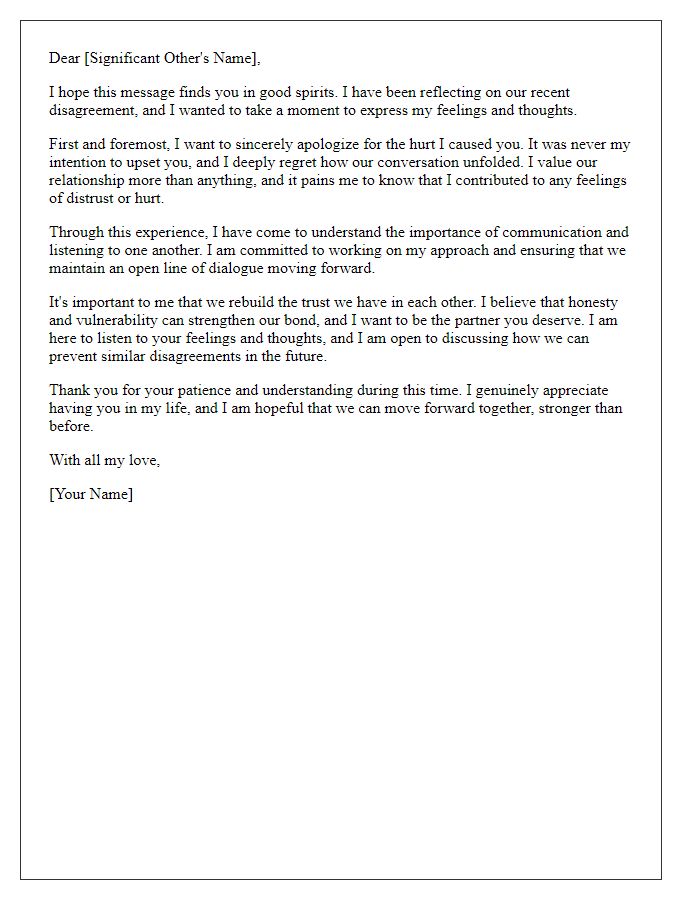

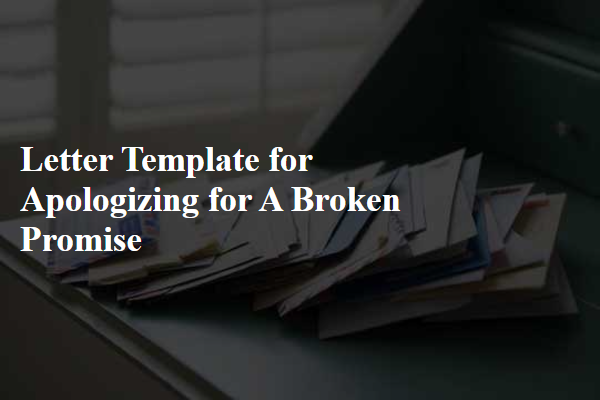
Comments